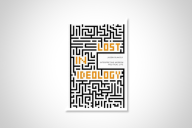You have /5 articles left.
Sign up for a free account or log in.
Paul Ricoeur -- the philosopher whose writings on hermeneutics were the cornerstone of an ambitious rethinking of the relationship between the humanities and the social sciences -- died on Friday at the age of 92.
By the late 1960s, American academic presses had made him one of the first French thinkers of his generation with a substantial body of work available in English. Even as an octogenarian, he was more productive than many scholars half his age. Late last year, the University of Chicago Press published Memory, History, Forgetting -- an enormous study of the conditions of possibility for both historical writing and moral forgiveness. His book The Course of Recognition is due from Harvard University Press this fall. And Ricoeur himself provided the ideal survey of his life and philosophical development in Critique and Commitment, a lively set of interviews that Columbia University Press issued in 1998.
At the time of his death, he was professor emeritus at both the University of Paris and the University of Chicago. "The entire European humanist tradition is mourning one of its most talented spokesmen," said a statement from the office of Jean-Pierre Raffarin, the prime minister of France, released over the weekend.
And that leads to a conundrum. It is Tuesday already, and nobody in the American media has insulted Ricoeur yet. What's going on? Have our pundits lost their commitment to mocking European intellectuals and the pointy-headed professors who read them?
At first I thought it might be that people were still tired from abusing Derrida following his death last fall. But clearly that's not it.
Over at The National Interest, for example, the neocons are already going after Jurgen Habermas, who is still very much alive, by the way. Despite being almost fanatically moderate -- his residual Marxism tempered by an admiration for the American pragmatist philosophers, combined with a hearty enthusiasm for constitutional democracy -- Habermas has criticized the invasion and occupation of Iraq. Besides, his political philosophy is grounded on the theory that the fundamental tendency of language is toward open and truthful communication. You can see where that would bother some people.
Yet Ricoeur, it seems, gave no one offense. With hindsight, that was a terrible oversight. A thinker receives significant publicity if (and only if) people speak his name in tones of apoplectic hysteria.
It was his own fault, really. Even more than Habermas, he was the soul of civility and calm intellectual labor. You will read many a page of Ricoeur before coming across any flash of apocalyptic rhetoric or stagy contrarianism. The closest thing to a bracing put-down in his writing is probably Ricouer's definition of structuralism as "Kantianism without a transcendental subject." (Which is actually kind of funny. But not, you know, Slavoj-Zizek-obscene-joke funny.
And while his work connected up with numerous other fields (sharing borders with linguistics, psychoanalysis, sociology, history, religious studies, literary theory, and law, just to give the short list), Ricoeur was in many ways an academic philosopher of a very traditional sort. His philosophy made no effort to jump out of its own skin -- to become, say, a form of avant-garde literature, or a conceptual weapon for guerrilla warfare. His work tends to ambitious, edifying, cumulative, and ... well, just a little bit dull at times.
That is not meant as a criticism exactly. Many things in the world are exciting without being good for you. Some readers find that the work of Ricoeur's younger colleague Gilles Deleuze is rather like the philosophical equivalent of taking LSD. (I can attest that, yes, there are definite similarities.) But there are limits to how much of cultural life can be conducted as a rave.
Perhaps the most salutary aspect of Ricoeur's work is that it has precisely the opposite effect of either the polemical or the psychedelic modes of intellectual intervention. It synthesizes, rather than obliterates. It treats the process of interpretation as an act of opening to the possibility of communication with the entire human community -- not as the moment when Narcissus becomes fascinated by the image in the pool.
Before dealing with the substance of Ricoeur's work, however, I want first to grapple more with the uncanny silence since his death. In American public life, you're nobody until somebody hates you. Frankly, the absence of rancor now verges on the disrespectful.
A modest proposal, then. Just as the neocons are now denouncing the mild-mannered Habermas, this might be the time for leftist wingnuts to go to town on Paul Ricoeur. As ever, total ignorance is no obstacle. Here is a quick checklist of talking points ("shrieking points?") for anyone who wants to get the vitriol flowing.
(1) Paul Ricoeur was a Christian his entire life. Most of his work is secular philosophical analysis, but he did publish writings on the Bible, and even gave sermons. Despite all that unpleasantness between his Huguenot ancestors and the Roman Catholic Church in the 16th and 17th centuries, Ricoeur is known to have spent a fair bit of time in discussion with Pope John Paul II over the years. The pope cited his work, even. Ricoeur denied being a theologian. However, there are subtle echoes and parallels between his philosophical ideas and his religious beliefs.
(For maximum effect, imitate the Fox News style like so: "Some have said that Ricoeur was actually a fundamentalist who used philosophy to brainwash his students." Nobody actually thinks this, but if you repeat it enough, someone will.)
(2) Ricoeur never really joined the "theory counterculture." When he published a major work on Freud and philosophy in 1964, the Lacanians got mad at him for failing to mention their guru. He soon became "the designated enemy," as Francois Dosse writes in his History of Structuralism, targeted by the Marxist students around Louis Althusser. A few years later, Ricoeur was a candidate for a chair at the prestigious Collège de France -- and lost the position to Michel Foucault.
(This definitely raises questions about his commitment to destroying the phallogocrentrism of dead white European males. Plus, now he is one.)
(3) In the mid-1960s, Ricoeur was a prominent advocate of reforms in the overburdened French university system. In 1967, he became involved in the launching of a satellite campus in the Parisian suburb of Nanterre, where he soon became dean of the college of letters. Following the student uprising of May 1968, the campus turned into a scene of continuous warfare among radical factions, some armed with chains and iron bars. Ricoeur himself was physically attacked, and some faculty refused to risk coming on campus. Eventually, he requested that police patrol the campus. This only made things worse, and in March 1970 Ricoeur resigned his position and took a long leave of absence.
(In repeating this information, hint that Ricoeur was actually a man of the right. Ignore the fact that Ricoeur was a pacifist, a supporter of the left-wing journal Esprit, and an outspoken opponent of French policy during the Algerian war. Just stress that he called the cops.)
(4) Finally, the clincher. Last November, Ricoeur was named as one of the winners of the John W. Kluge Prize for Lifetime Achievement in the Humanities and Social Sciences, given by the Library of Congress. He split the award of $1 million with Jaroslav Pelikan, a scholar of religious history.
(Note how suspicious it is that he received this award right after Derrida died. Imply that it was the religious right's way of rewarding an intellectual lapdog. Added benefit: now you have an excuse not to read him.)
Well, that was depressing, even as an exercise in satire.
In the middle of writing it, I learned of Russell Arben Fox's "Thoughts on Ricoeur." It's the first really substantial blogospheric commentary on the philosopher's death to come my way -- and a sign that perhaps things are not so dire, after all.
As Fox notes, Ricoeur was one of those thinkers it proved easy to "save for later." Beyond a certain level of familiarity, it seemed hopeless to try to catch up with him, because he was just too prolific. And there was also the fact that his work seems to have gone through somewhere between three and five stages of development.
Be that as it may, I'll try on Thursday to give a thumbnail account of what was (and still is) at stake in his work. Or at least what I know of it.
In the meantime, you might have a look at Ricoeur's acceptance speech for the Kluge Award. Knowing that he wrote it at the age of 91 is a reminder of one benefit of Paul Ricoeur's work: Reading it keeps you humble.








